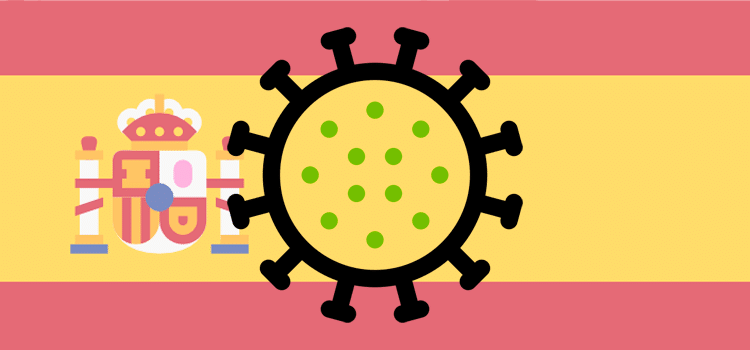To check the real time evolutions concerning international mobility all over of the world, discover the GoWork – COVID-19 Digital Card.
Update: July 30th, 2020
Spain updates entry rules regarding COVID-19
What is the change?
The Spanish government has amended the criteria for non-essential travel restrictions as a result of COVID-19. The updated list of countries exempted from entry ban includes countries added and removed as health conditions worsen/improve in each country.
Key Points:
- Citizens from the following countries can travel to Spain: Algeria (subject to reciprocity), Australia, Canada, China (subject to reciprocity), Georgia, Japan, Morocco (subject to reciprocity), New Zealand, Rwanda, South Korea, Thailand, Tunisia, Uruguay.
- The list may be subject to modification at the discretion of the Ministry of the Interior.
- The following groups are also exempt from the entry ban:
- Residents of the EU, Schengen-associated states, Andorra, Monaco, the Vatican or San Marino who provide documentary evidence.
- Holders of a long-term visa issued by a Member State or Schengen-associated state.
- Working healthcare/elderly care professionals and health researchers.
- Sea and flight crews and other personnel required to carry out air transport activities and transport of goods.
- Members of diplomatic missions, consular posts, international and military organisms, civil protection, and humanitarian organizations for the performance of their official duties.
- Students undertaking studies in Member States or Schengen-associated states provided they are traveling to the country where they study and entry is undertaken during the academic year or 15 days prior its start.
- Highly qualified employees whose activity is mandatory, cannot be postponed or undertaken remotely, including participants in upscale sports competitions taking place in Spain.
- Persons traveling for imperative family reasons.
- Persons who provide evidence of force majeure, necessity, or whose entry is permitted on humanitarian grounds.
This order will remain in effect until 31 July and will be amended according to health conditions in Spain and in each individual country.
—
Update: May 22th, 2020
Automatic extension of immigration documents, renewals implemented
What is the change?
Spain recently announced automatic extensions for permits, visas, foreigner identification cards, renewals and long-term stays, to provide relief during the COVID-19 pandemic.
Key Points:
- All work and residence permits, as well as foreigner ID cards, that expire during the state of emergency will be extended automatically the day after they expire. The automatic extension will be valid for six months after the state of emergency has ended.
- The automatic extension also applies to renewal processes that are underway until there is a resolution.
- Long-term stays and visas will likewise be extended for three months after the state of emergency has ended.
- Residents of Spain or holders of long-term visas who are not inside the national territory, with permits or visas that expired during the state of emergency, and who are unable to return because of border closures, can enter the country using an expired permit or visa and a travel document once the restrictions have ended.
The automatic extension of stay is good news because it provides some relief to foreign nationals stranded in Spain.
—
Update: April 17th, 2020
State of alarm extended again
What is the change?
Spanish authorities have extended the country’s COVID-19 state of alarm again to mitigate the spread of COVID-19.
Key Points:
- The current state of alarm has been extended again until April 26. The extension applies to inland border controls as well.
- The original state of alarm implemented many measures to restrict the movement of people. It was first extended to April 12 and recently has been extended again to April 26. Business activities and travel remain limited. Certain immigration services are suspended and online services are also limited. Land borders are closed as well, with several exceptions.
The state of alarm extension will continue to impact the mobility of third-country, and EU nationals and their dependents into Spain. It is possible the current state of alert will be extended again. Employers should account for affected travelers and rearrange travel schedules accordingly. Delays may occur for consular and in-country processing
—
Update: March 25th, 2020
COVID-19 travel restrictions strengthened again
What is the change?
The Spanish government recently announced stronger travel restrictions to mitigate the spread of COVID-19.
Key points
Effective from March 23 at midnight, third-country nationals and EU nationals and their dependents, are no longer allowed to enter the country, with a number of exceptions:
- Spanish residents or residents in transit to their homes in other Schengen or Member states
- Long-term visa holders who have visas from Schengen or Member states who are traveling to those places
- Professionals engaging in healthcare and elder care who are traveling for work
- Transportation personnel who are working to ship goods and flight crew who are working while engaging in commercial aviation tasks
- Consular office personnel, diplomatic mission members, and military and international organization personnel who are performing professional work
- Individuals with very important family reasons for traveling
- Individuals who have documentation of a need or an unforeseen circumstance
- Individuals whose movement is allowed because of humanitarian reasons
- The suspension also does not apply to these two areas: the inland border with Andorra and at a checkpoint for the Gibraltar territory
- Additionally, the inland borders with Ceuta and Melilla are temporarily closed for entering and exiting the country
The new travel restrictions will impact the mobility of third-country, and EU nationals and their dependents into Spain. It is likely the current state of alert will be extended. Employers should account for affected travelers and rearrange travel schedules accordingly. Significant delays may occur for consular and in-country processing.
